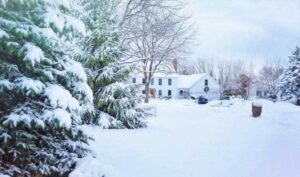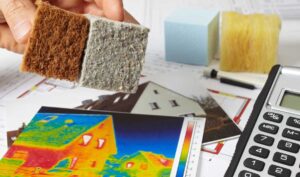
The Arkansas Winter Climate
Many Arkansans love our winter weather with its mild days and occasional snow. But residents know Arkansas winters can also be unpredictable. Unexpectedly cold nights, occasional ice storms and cold snaps can lead to fluctuating temperature ranges that can strain your home’s energy efficiency and heating systems without proper insulation. This unpredictable season of cold weather underscores the importance of taking the steps to prepare your home for every winter surprise.
Benefits of Proper Insulation

Key Areas to Insulate
Every part of your home, whether attics, floors, or walls, will benefit from adding insulation. Here are some of the key areas where insulation will make the biggest difference in your home’s energy efficiency:
Attics:
An insulated attic keeps warm air in and prevents significant heat loss through your roof, making it one of the most important places to insulate.
Walls:
Since your walls make up the largest surface area of your home, proper insulation is vital to prevent cold drafts and heat loss, especially for your exterior walls.
Floors:
Insulating your floors, especially over unheated garages, crawl spaces, or basements, will keep your feet warm and reduce the chill in the room.
Basements and Crawl Spaces:
Often overlooked, these areas can be a source of cold drafts if not insulated.
Windows and Doors:
Weatherstripping and sealing these areas for air leaks will help prevent cold drafts and enhance the efficiency of your insulation.
Choosing the Right Insulation
When it comes to choosing the right type of insulation for your home there are several things to consider: where you are adding insulation, whether your home is new or existing, and your budget. Each insulation material has its own unique benefits which is why it’s important to consult with an insulation professional before installing any insulation in your home.
- Batt insulation is the most common type of installed insulation and comes in pre-cut panels, usually made of fiberglass. It’s ideal for wall cavities, ceiling joists, and other spaces without lots of piping or wiring.
- Blown-in insulation is made of small particles fiberglass or cellulose, and is ideal for closed walls of existing homes that need better insulation, irregularly shaped areas, and around obstructions.
- Spray foam insulation is a liquid that expands and hardens to air seal and insulate in one step, and is a popular choice to fill wall cavities, attics, and basements, and crawl spaces.
- Cellulose insulation is made of recycled paper products and is often installed in open spaces like attics and open walls during construction or remodeling, or dense packed into closed walls.
Be Prepared for Every Winter Weather Surprise
As you gear up for winter fun this year, don’t underestimate the power of home insulation. It’s one of the best investments you can make for your home and will not only keep you and your family warm and snug throughout the winter season but will save you money and help protect our Earth in the long run. We want to make sure your home is prepared with proper insulation for every winter weather surprise Mother Nature sends your way this and every year. Contact our expert insulation team today for your free consultation.
Frequently Asked Questions
Check out these FAQs for even more information about home insulation.
- Q: How often should insulation be replaced?
- A: Every type of insulation is different, with some types lasting the lifetime of your home, but it’s important to replace your insulation if it becomes damaged, deteriorated, or if energy efficiency declines significantly.
- Q: What are the signs that my home needs better insulation?
- A: Signs that your home needs better insulation include drafts, uneven indoor temperatures, high energy bills, and visible gaps or cracks.
- Q: How much can I save on energy bills with proper insulation?
- A: Arkansas homeowners can expect to save between 8-14% annually on their energy bills when they properly insulate and air seal their home.
- Q: Is there any environmental benefit to insulating my home?
- A: Absolutely! Insulating your home can have significant environmental benefits by reducing energy consumption and lowering greenhouse gas emissions.
- Q: Are there any tax credits or incentives for home insulation in Arkansas?
- A: Yes! Check out our Tax Credits page for valuable information about available tax credits and incentives in Arkansas.

